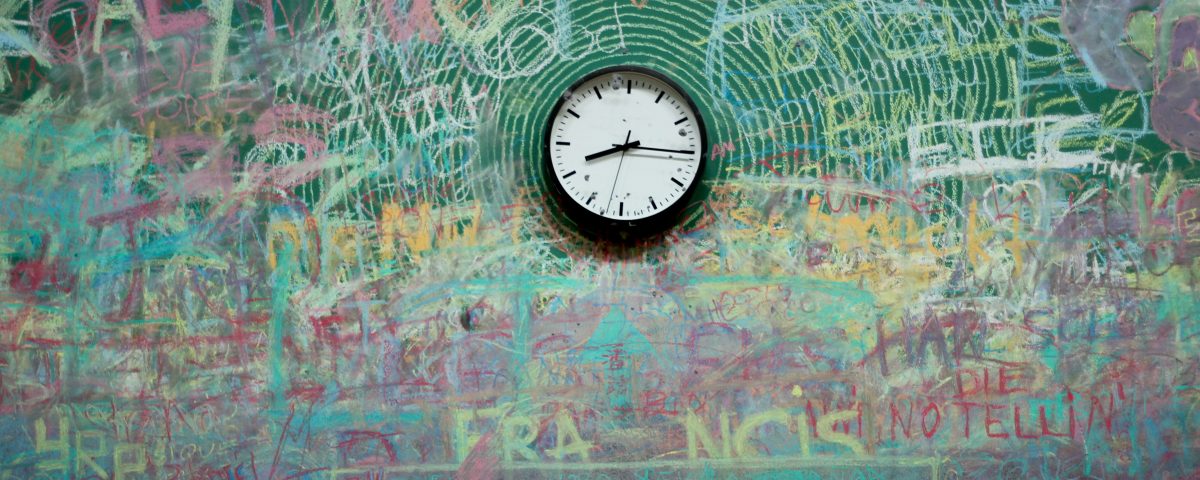What Exactly Is Alternative Education and What Does it Look Like at Oliverian?
What Exactly Is Alternative Education and What Does it Look Like at Oliverian?
While alternative education can mean many things, at Oliverian it simply means finding creative ways to help students tap their full potential.
Alternative education, at its core, seeks to find and foster the potential of students who haven’t thrived in traditional settings. As one might expect, this requires a willingness to utilize uncommon methods to achieve common objectives such as college, life, and career preparation.
At its best, alternative education helps unconventional students learn, socialize, and–to borrow a famous tagline–think different, and to view “different” as an asset rather than a liability. But alternative education wouldn’t be very alternative if every alternative school did it the same way. There is no one prevailing or authoritative description, therefore, of alternative education.
The Oliverian Alternative
What does alternative education look like at Oliverian? Our school is designed to meet the needs of what we term “in-between” students. These are academically capable adolescents who, nonetheless, see the world a little differently and have struggled with traditional formulas for success. We define “in-between students” as those who would benefit from emotional, social, and/or learning support, but who don’t require intensive treatment or rigid structure. So they are somewhere in-between a student who would thrive in a traditional setting and one who needs a therapeutic intervention. Oliverian students are ready for the autonomy and support necessary to discover, and then master, their own best ways of being, relating, and learning.
A Three-Tiered Approach
Oliverian’s primary aim is to help students enter young adulthood with the personal, social, and intellectual competencies to succeed and find their place in the world. We believe a crucial element of this process is to understand how their differences are often their most powerful assets. Borrowing from research-validated approaches including Self-Determination Theory (Edward L. Deci), Mindset Theory (Carol Dweck, Stanford University), and Multiple Intelligences Theory (Howard Gardner, Harvard University), to name a few, our school program is designed around three major tasks of adolescent development:
1) Find Yourself: Oliverian’s Counseling Department helps students answer some of the most fundamental questions of identity: Who am I? What’s my relationship to me? Do I understand myself as a learner? Do I understand myself as social person?
2) Find Your People: The Student Life Department knows that because our students play, live, learn, and eat together, Oliverian is a perfect laboratory for learning how to relate to others, manage boundaries, forge healthy friendships, and develop social skills and ease.
3) Find Your Purpose: The Academic Department helps students find and fulfil their purpose through a wide offering of college-preparatory and elective classes as well as college and career preparation. Oliverian’s academic faculty helps students discover their passions and develop the competencies to turn those passions into professions.
With nearly a 1:1 student to faculty ratio, Oliverian ensures that these three developmental tasks remain at the core of all activities for every student. From the classroom to the dining hall, Oliverian students are in a constant process of questioning, learning, and developing.
Support vs Structure
In the spirit of alternative education, Oliverian School eschews the rigid structure and extrinsic rewards and consequences typical of both traditional and therapeutic institutions. But unlike many alternative schools, we replace these more behavioristic structures with a powerful element that is well supported by research: relational support.
Rather than preventing mistakes through intensive structure, we offer intensive adult support that is designed to turn mistakes into learning opportunities. Our experience validates what the research posits: intensive and nurturing adult support provides many of the same benefits as structure–like safety and predictability–without rigid structures that prevent autonomous learning and little resemble the adult world we are preparing students to enter.
This high level of adult support allows our students the room, and safety, to make mistakes and learn from them. We think of our role as analogous to a gymnastics spotter; we’re there to prevent disastrous falls, but not instructive falls. We strongly believe in the power of failing forward. We celebrate our students’ successes while valuing their inevitable mistakes as equally important opportunities to self-evaluate, learn, and practice resilience.
Oliverian approaches discipline with a similar attitude. Rather than provide a set of prescribed punishments for problem behaviors, we opt for flexible approaches that account for each student’s uniqueness, incorporating the principles of restorative justice and natural consequences. The former requires students to hear from and make amends to those impacted by their behaviors so that behavioral growth is socially informed and intrinsically motivated. The latter (natural consequences) means that students are encouraged to engage and correct the specific consequences of their behavior. If a student kicks a hole in the wall, for instance, they can work with the maintenance staff to repair that wall in lieu of a more punitive response. In addition, we look for the drivers of behaviors and seek to address those drivers directly, whether social, emotional, familial, or neurological.
Finally, unlike many traditional and therapeutic schools, Oliverian views freedom as essential to preparing students for a successful launch into young adulthood. Most traditional and therapeutic schools cannot provide a high degree of freedom because it requires intensive faculty engagement and supervision. Oliverian’s extremely high staff to student ratio and relational approach make our students’ experience of independence challenging and productive. It’s through authentic but guided experiences of autonomy that students develop their own ways of thinking and problem solving.
Oliverian students often discover unorthodox ways of doing everyday things, learning approaches to school, work, and relationships that work best for them. In this way, we help them find themselves, their people, and their purpose so that they can confidently occupy their unique place in the world. And that is what Oliverian means by an alternative education.

